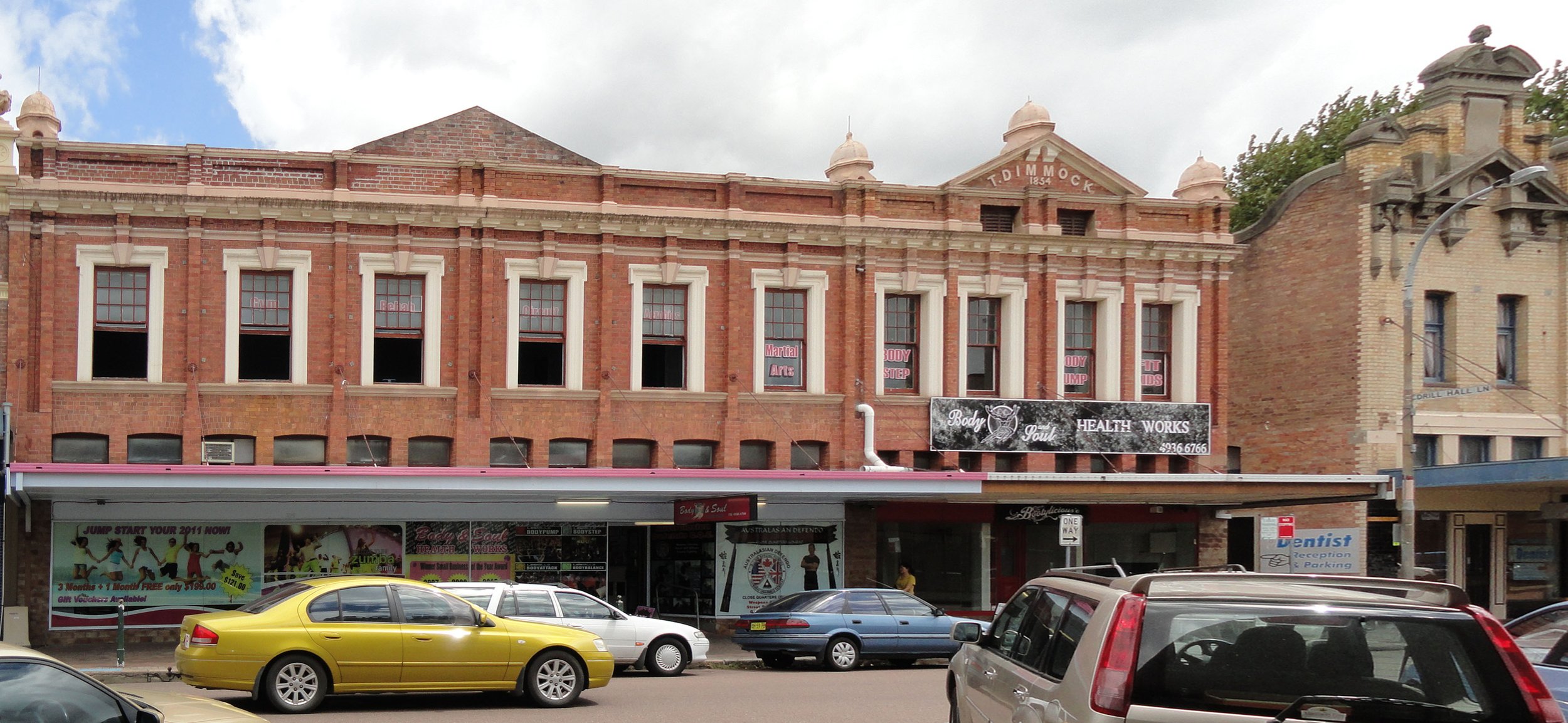Thomas Dimmock, printing entrepreneur
Thomas Dimmock was an important figure in Maitland business circles for many years both before and after 1900. His influence remains today, because the printing and stationery firm he established in 1878 still exists: six generations of Dimmocks have operated it. Today it could be Maitland’s longest continuously functioning family firm.
The development of the business
The business was established by Henry Thomas in 1854 in High St, on a site opposite the one now occupied by the Maitland Repertory Theatre. Almost immediately, Henry apprenticed a 12-year-old boy called Thomas Dimmock. Eventually, Dimmock left Thomas's employ to work for the Maitland Mercury, but he returned to buy his first employer out. He placed the following advertisement in the Mercury on Saturday, 19 April, 1879 on p3:
The new owner proved to be a capable entrepreneur, and the business grew. In due course it became the largest printing and wholesale stationery house between Newcastle and the Queensland border, developing a reputation for quality printing work at prices below those charged in Sydney.
Thomas Dimmock prospered. In 1900 he built a well-appointed house which still stands at the corner of Elgin St and Olive St.
He had become a member of Maitland's business elite and a leading member of several important institutions including the Hunter River Agricultural and Horticultural Association, the Maitland and District Chamber of Commerce, the Loyal Good Design Lodge of Oddfellows, the Protestant Alliance Friendly Society, the Maitland Mutual Building Society and St Mary's Church. He was on the board of the Building Society as a director from its inception in 1888, and for a time he was its chairman.
Right: Thomas Dimmock (from Tom Morgan, Mutually Yours.)
The business expanded, employed more people and came to need larger premises. In 1901 it was moved into a new two-storey building just west of the intersection of Charles St and High St and next to the Bank of NSW Arcade.
T. Dimmock building, 1922
From With Compliments, West Maitland, 1922, printed by T Dimmock.
(Picture Maitland, Maitland City Library)
One measure of Dimmock’s situation shortly after the turn of the century was that the business had a telephone: its number was 28. In 1905 there were, according to John Turner’s The Rise of High Street, Maitland, only 82 subscribers to the infant telephone service of West Maitland and East Maitland which at that time had about 3000 dwellings and business premises. The population of the area of the current City of Maitland was then about 12,000, about half of it in West Maitland centred on the High St business district.
Over time the machinery associated with developing new printing technologies was installed, lithographic work and colour printing being introduced along with bookbinding. Orders came in from a wide area extending well beyond the Hunter Valley. In 1911 extensions were made to the rear of the premises, and in 1923 the floor area of the business was tripled by the construction of an even bigger two-storey building adjoining the first structure on its eastern side.
Dimmocks was to operate out of its now very large facility at 359-63 High St for some decades. The retail stationery outlet, needing visibility, fronted High St with the printing operation located at the rear. Employing at times more than 30 people, the business became one of the largest operating in Maitland.
T Dimmock building, High St, 2011
The impact of floods on the Dimmock premises
Both in its original location and in the new one, the business was affected by floods. Between 1854 and 1901, according to Keys’ Maitland Speaks, at least four and possibly as many as eight floods entered the premises which probably had a dirt floor. In 1893 the water was 7 feet 6 inches (about 2.3 metres) deep inside the printery. Losses in that flood were estimated by Dimmock to be in the order of £1500, easily equivalent to a six-figure dollar sum in today’s terms.
On the slightly higher site after the relocation of 1901, floodwaters probably entered the company’s building on five occasions: in 1913, 1930, 1949, 1952 and 1955. On the last occasion it reached a depth of more than 1.8 metres over the floor and much volunteer help from Newcastle printers was needed to take apart the printing machines, clean out the silt and re-assemble them.
A family business
Thomas Dimmock died in 1915, aged 73. Thereafter the firm was run by his sons Sam and Fred (the second generation) and then Reg and George (the third), Reg's son Russell and Russell's son and grandson Bruce and Darren Dimmock. Today the company is operated by Darren from Beresfield.
References
Keys, Chas, ‘Our past: Dimmocks - from small start to Maitland family dynasty’, Maitland Mercury, 17 May 2020.
Keys, Chas, Maitland Speaks: the experience of floods, Floodplain Publishing, Newcastle, 2020.
Morgan, Tom, Mutually Yours: the first 100 years of the Maitland Mutual Building Society, The Society, Maitland, 1990.
Turner, John, The Rise of High Street, Maitland: a pictorial history, second edition, Council of the City of Maitland, Maitland, 1989.





